
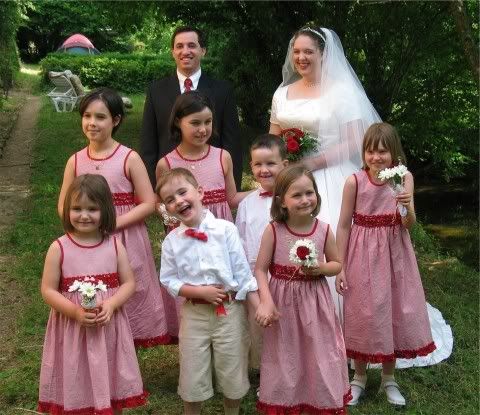
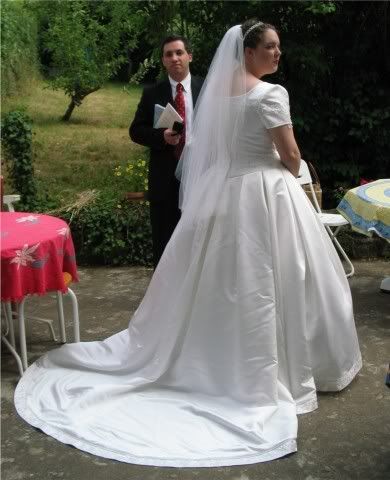
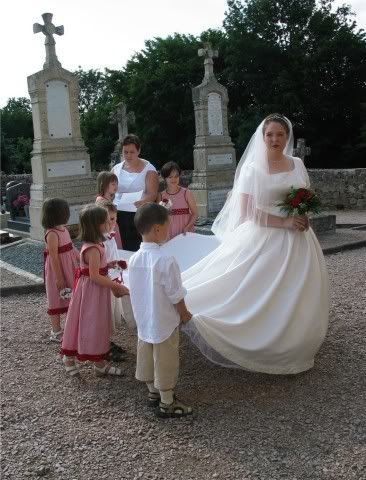
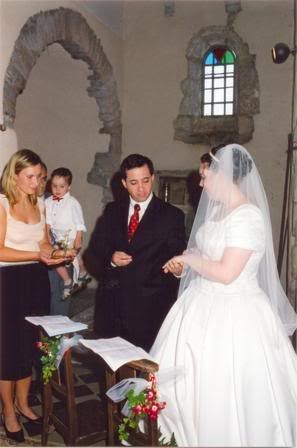
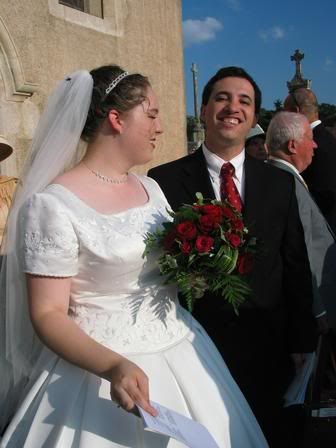


A Catholic housewife's musings on life, theology, philosophy...and the daily monotonous tasks of homekeeping.
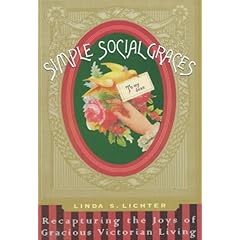 I've mentioned before that I'm very much a girly-girl, I love dressing up, and most of all I enjoy being feminine. I've always been very interested in gender roles, and in how our society has changed its views about gender roles (for better or for worse - probably some of both!) For my last assignment in my Senior Seminar class at college, I chose to write about the drastic change in fashion from the late Victorians to the Flappers of the 1920s, and what this outward change signified in terms of inner thoughts about gender roles. It seemed to me that while so-called feminists were claiming to want to fight for women and "free" them from the shackles of patriarchy and oppression, they went about it quite wrong. What they did was try to usurp men's roles, and try to turn themselves into men, and by doing so they actually diminished the value of women and femininity. I focused on fashion as the outward expression of this desire to become more man-like.
I've mentioned before that I'm very much a girly-girl, I love dressing up, and most of all I enjoy being feminine. I've always been very interested in gender roles, and in how our society has changed its views about gender roles (for better or for worse - probably some of both!) For my last assignment in my Senior Seminar class at college, I chose to write about the drastic change in fashion from the late Victorians to the Flappers of the 1920s, and what this outward change signified in terms of inner thoughts about gender roles. It seemed to me that while so-called feminists were claiming to want to fight for women and "free" them from the shackles of patriarchy and oppression, they went about it quite wrong. What they did was try to usurp men's roles, and try to turn themselves into men, and by doing so they actually diminished the value of women and femininity. I focused on fashion as the outward expression of this desire to become more man-like.  Lichter also explains how much of the etiquette protected women, and was actually very pro-woman, and allowed the woman to often be in charge of the situation. For instance, a man was expected to properly tip his hat or bow when passing a woman he knew on the street, and she was expected to show appreciation, but the man was not to "take advantage" of her polite return gesture by pushing more acquaintance, unless she invited it. It was her choice. Such universal rules helped to level the playing field, to allow everyone to be respectful and be respected.
Lichter also explains how much of the etiquette protected women, and was actually very pro-woman, and allowed the woman to often be in charge of the situation. For instance, a man was expected to properly tip his hat or bow when passing a woman he knew on the street, and she was expected to show appreciation, but the man was not to "take advantage" of her polite return gesture by pushing more acquaintance, unless she invited it. It was her choice. Such universal rules helped to level the playing field, to allow everyone to be respectful and be respected.
Even as we bemoan our plummeting birth rate, and the grim economic future it may bring, everything about the way we've organized our culture is designed to force women to choose between work and kids -- and to penalize them if they choose kids. And so, these days, it's not just a matter of a woman wanting children; it's a matter of wanting them at the expense of everything else she's worked for.
__________________________________________________
The reality...is that a professional, highly educated woman...has invested years of her life in attaining a certain level of education and career success. She may or may not be married. She has established a standard of living, and is less willing to take the career and financial hit involved in having a kid. "So many women in their 30s, they like their lives," says Duxbury, who specializes in work-life balance issues and co-authored a study last year to examine the major factors that influence professional women's decision to have (or not have) children. Many don't see themselves as childless, but child-free. "They're accustomed to control and motherhood is not associated with control."
___________________________________________________
In Vienna, researchers at the International Instutite for Applied Systems Analysis have developed a disquieting hypothesis called the "low fertility trap," which suggests that the causes of low fertility are self-perpetuating. They foresee the potential for the baby bust to spiral out of control for three reasons: first, negative population growth means there will be fewer women of child-bearing age in the future to produce more children. Second, young people have been socialized to believe that the ideal family size is a small one, which means fewer couples will have more than one child. Finally, the aging population will place tremendous financial strain on younger cohorts -- who have been raised with higher material aspirations to begin with -- which will translate into fewer children, or none at all.
____________________________________________________
Amazingly, the evidence suggests that the most successful policies have one thing in common: they don't try to pay women to procreate. Rather, they facilitate the careers of working mothers. They are premised on the idea that, the more value a society places on women's work inside and outside of the home, the more likely she is to want to contribute meaningfully in both spheres.
The most promising recent case study is that of France, where the government has successfully sparked a baby boom by implementing a series of extraordinarily generous benefits and incentives for parents. There is a calibrated income-tax rate for families whereby the more children a couple has, the more money they keep in their pockets. The state offers a monthly allowance of roughly $400, which is bumped up when the child reaches the age of 11. Parents are entitled to a tax deduction for in-home child care help (which Prime Minister Dominique de Villepin, who stepped down this week, recently announced will be doubled). There is an extensive state-run crèche system, where parents can leave their toddlers at a moment's notice, for free. Families with three or more kids are deemed "famille nombreuses" and are eligible for zero income tax, heavily subsidized rent and transportation, and state-funded parental leaves that can extend for years. They also get free access to many public amenities, and about $325 per year toward extracurricular arts and athletics programs for the kids.
In only two years, France's fertility rate has climbed from 1.8 to 2.0, and only a quarter of its overall population growth last year was attributed to immigration.
_____________________________________________________
"The European model is, 'We have to make it possible for those people who can afford to have and raise kids to have them.' Our model in North America is, 'Well, you decided to have a child. That was your personal decision, so don't expect us to help you.' "
The great hypocrisy of this model is that we extol family values and the role of the at-home mom, says Bravo, and yet we make it virtually impossible for women who aren't independently wealthy to stay home. We expect middle- and lower-class women to work and, when it comes to parental responsibilities, we expect them to figure it out on their own dime. Then we label it a choice, so we can say, 'If she had only chosen differently, she'd have more money, and more time with her kids.'
 I couldn't wait for the newest Pixar movie, Ratatouille, to come out. I mean a Pixar movie set in Paris?? What's not to love?? We were lucky enough to see the sneak preview tonight!!
I couldn't wait for the newest Pixar movie, Ratatouille, to come out. I mean a Pixar movie set in Paris?? What's not to love?? We were lucky enough to see the sneak preview tonight!!1) Since we got our cat at Christmas, I have not once scooped or cleaned the litter box! (Isn't my husband wonderful??)
2) I play bassoon...'nuff said.
3) A lot of people already know this, but I have some weird hair pigment issues going on. I have a natural blonde streak on the left side of my hair, and my left eyelashes are blonde, while my right eyelashes are not. I also have a bit of a blonde patch in my left eyebrow which just makes it look shorter! (If you look closely at my pic, you can see the eyelashes, the blonde hair is covered though)
4) As much as I try to eat natural foods, I have a few love affairs with some processed junk that just will not die. I LOVE Planter's Cheez balls (which have been DISCONTINUED by the way!!! Click here to sign a petition to bring them back, lol!!) I also love Kraft Mac n Cheese, with ketchup. It's my shameful secret...ok it's not so secret, anyone who knows me knows that, lol.
5) I have a severe aversion to...ok, I can type this out, I know I can...*gag*....the idea of...*gag*....kleenex type tissue or thin napkins sticking to one's tongue, especially when they get moist enough to tear! BLECH!!! *shudder* It makes me feel, like, it zaps the moisture away and then you can't get it off your tongue. Same with the idea of cotton in the mouth, ICK!!!!
6) Ummm....oh! When getting out of the shower, I HAVE to dry my feet first, I hate the idea of stepping onto the ground (or mat, rug, whatever) with wet feet. It's partly an ick factor thing, and partly a paranoia about slipping and falling!
7) I just bought a petticoat/crinoline type thing to wear under some of my dresses and skirts, and I can't WAIT to get it!!!!! I strive to be June Cleaver! lol
8) I'm pretty sure I have never in my life mowed a lawn!
Ok, I'm too lazy to actually tag eight people, so instead I'll just say anyone who feels like doing this one, go for it! :-)
